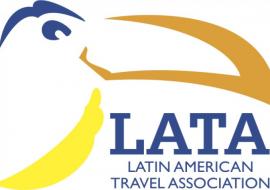Pisa Forum Forecasts Another Record Year for World Travel
Rising fuel prices, exchange rate fluctuations, increased taxation related to air travel, and continued threats to travelers’ health, safety and security. These are just a few of the challenges that have faced the global tourism industry in 2007.
Yet, over the first eight months of the year, outbound travel rose by between 5 and 6 percent worldwide in terms of trip volume, resulting in what is expected to be the fourth consecutive year of sustained growth. And this trend is forecast to continue in 2008, albeit at a slightly slower rate (up 4 to 5 percent).
This was one of the main messages to come out of the three days of presentations and intensive discussions between world tourism experts gathered in Pisa from 24-26 October for the 15th World Travel Monitor Forum.
The meeting, more commonly known as the Pisa Forum, and which was once again sponsored by ITB Berlin, was as usual organized by IPK International, founders and producers of the World Travel Monitor survey, in cooperation with the European Travel Commission.
Other important contributing factors cited by participants at the Pisa Forum include the expansion and spread of low-cost/low-fare airline services –almost all regions of the world are now benefiting from the trend- and significant increases in outbound travel from emerging markets and less traditional European source countries.
Nevertheless, Europe’s most important outbound travel markets, Germany and the UK, have turned in disappointing performances this year so far, and are not expected to show much improvement before the end of 2007.
In Germany’s case, the market’s sluggish performance was attributed by Pisa participants to uncertainties over employment prospects, together with the negative impact of the three percentage point rise in VAT at the start of the year.
Stagnation in the UK market, on the other hand, is blamed on the government’s decision to sharply increase the Air Passenger Duty, as well as a possible saturation in demand for secondary short breaks using low-cost carriers, and increased hassles associated with travel through UK airports as a result of stepped-up security and immigration checks.
To put things into perspective, outbound travel from the USA increased by just 1 percent through the month of August, according to official data from the U.S. Department of Commerce –due in no small part to the weak dollar- while the growth for some Asian and Latin American markets exceeded 20 percent in terms of either expenditure and/or trip volume.
South Korea, India, Brazil and China led the growth from emerging markets, although a number of other developing economies have confirmed their growth potential. By way of example, the World Tourism Organization cited the United Arab Emirates, Argentina, Malaysia and Indonesia.
Climate change is emerging as important issue, although there is no evidence that it has had a negative impact on demand until now, the Pisa Forum agreed. But this could change in the future, although the tourism industry’s potential to adapt to the new threat and introduce effective mitigation policies remains high.














